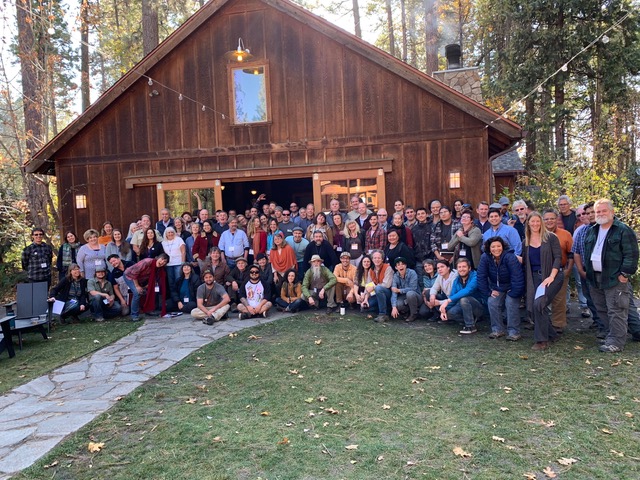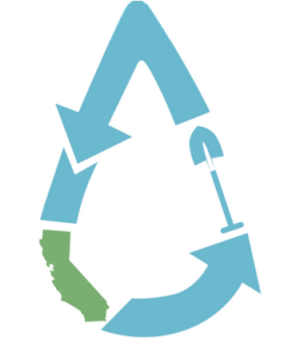On November 7-9, 2018 a diverse group of water professionals and activists including water agency staff, government regulators, engineers and designers, plumbers and landscapers, indigenous water protectors, community action groups, and other stakeholders gathered near Yosemite CA for the sixth time to discuss the urgent need to localize the management of water as a principal pathway toward climate resiliency and regeneration. Like the local food movement, the local water movement recognizes that CA’s current large-scale, industrialized water management systems have a huge carbon footprint, including 35% of CA’s total energy consumption for water transportation and treatment. OAEC and the WATER Institute are sponsors of this annual convening to share information, best practices, and initiate policy change toward localized, smaller scale, decentralized water systems that are both ecologically sustainable and economically efficient.
The conference was kicked off by the youth defenders of the Klamath river whose families have been fishing the Klamath for countless generations. Sammy Gensaw, a member of the Ancestral Guard of the Kurock Nation, set the tone. In this day and age, he asserted, we need to draw on all different kinds of wisdom, especially indigenous wisdom, in addition to data and hard science in protecting and regenerating the waters for the future.
“Water is us,” he said. “When we are in the river, we are building the subconscious of the next generation.”
The indigenous voice asking for urgent attention for the protection of water was echoed by the Governor’s office liaison for Rural and Community Affairs on Drought who also urged the group to bring a common message into the mainstream so as to directly influence the climate decision making in Sacramento and throughout CA.
The conference came on the heels of the release of the latest UN Intergovernmental Panel on Climate Change (IPCC) report in which the world’s leading climate scientists warned that there are only a dozen years for global warming to be kept to a maximum of 1.5C, beyond which even half a degree will significantly worsen the risks of drought, floods, extreme heat and poverty for hundreds of millions of people throughout the globe. To address this urgency, this year’s conference was extremely ambitions in its effort to find alignment on key issues so that water people from different sectors could have a unified voice.
Brock Dolman, Co-Director of the OAEC Water Institute, supported the group’s thinking around how the small water cycle and the large water cycle of the globe work together to impact our daily use patters. Miriam Volat, our Compost Toilet Research Project lead, facilitated the group through the often difficult but fruitful conversations that led to some common principals and particular goals for the year. One of the challenging questions that the group encountered was: How do we in CA, as people with sometimes very different world views, address the urgent issue of climate?
OAEC has been helping to lead the Localizing CA Waters efforts, first as the Decentralized Water Policy Council, which last year morphed into various working groups (black water, grey water, storm/surface water, ground water) under the umbrella of COWA – California Onsite Water Association. OAEC plans to continue participating in COWA’s efforts in the blackwater working group as we push forward our Compost Toilet Research Project.
Get involved! Click here for more information about COWA and the Localizing California Waters Conference.







